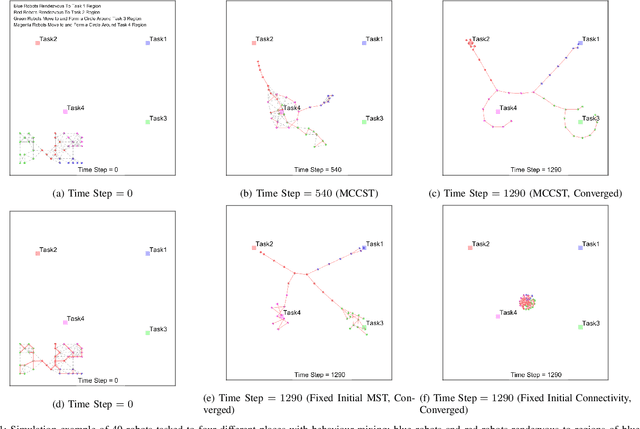Behavior Mixing with Minimum Global and Subgroup Connectivity Maintenance for Large-Scale Multi-Robot Systems
Paper and Code
Oct 03, 2019


In many cases the multi-robot systems are desired to execute simultaneously multiple behaviors with different controllers, and sequences of behaviors in real time, which we call \textit{behavior mixing}. Behavior mixing is accomplished when different subgroups of the overall robot team change their controllers to collectively achieve given tasks while maintaining connectivity within and across subgroups in one connected communication graph. In this paper, we present a provably minimum connectivity maintenance framework to ensure the subgroups and overall robot team stay connected at all time while providing the highest freedom for behavior mixing. In particular, we propose a real-time distributed Minimum Connectivity Constraint Spanning Tree (MCCST) algorithm to select the minimum inter-robot connectivity constraints preserving subgroup and global connectivity that are \textit{least likely to be violated} by the original controllers. With the employed control barrier functions for the activated connectivity constraints as well as collision avoidance, the behavior mixing controllers are thus modified in a minimally invasive manner. We demonstrate the effectiveness and scalability of our approach via simulations of up to 100 robots in presence of multiple behaviors.
 Add to Chrome
Add to Chrome Add to Firefox
Add to Firefox Add to Edge
Add to Edge